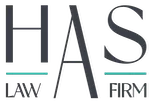- in European Union
- in European Union
- in European Union
- in European Union
- within Technology, Insolvency/Bankruptcy/Re-Structuring and Transport topic(s)
With the advancement of communication technology and information systems, and as many companies allow employees to work remotely, maintaining professional confidentiality is an ethical and legal duty required by the public interest. Therefore, it is essential to adhere to professional regulations to avoid being involved in the crime of disclosure of secrets. Committing this type of crime has become more common as it requires no more than a click of a button.
Legally, the crime of disclosure of secrets is defined as:
"Revealing facts that are of confidential nature by a person entrusted with them due to their position, job, or profession, in situations not legally permitted."
Professional secrecy refers to any fact or matter related to a natural or legal person that must remain confidential and is entrusted to someone who is legally obligated to maintain its confidentiality.
Court cases have shown many examples of competitors exploit employees with weak moral integrity, tempting them to sell their company's secrets, particularly customer databases, bids, tenders, and other sensitive information. Such breaches can cause significant losses to companies without them even realizing the reason behind it.
Thus, it is crucial to understand the legal elements and conditions related to this crime to prevent falling into it.
Breach of Confidentiality
Disclosure of secrets is an intentional crime requiring specific criminal intent, which involves both knowledge and will. The crime does not require the explicit request of the secret's owner to keep it confidential; the obligation may be implied, such as in the case of doctors, lawyers, and bankers, who are bound by duty not to disclose their clients' secrets.
Additionally, the law does not require the owner of the secret to have legal capacity. The confidentiality of the information derives from the nature of the fact itself. To be punishable, the act of disclosure must be clear and leave no room for doubt or interpretation. If the disclosure is ambiguous or indirect, it does not constitute a crime.
However, disclosure may occur implicitly, such as when a person entrusted with a secret allows others to access it or fails to prevent unauthorized access when they had the ability to do so.
Legal Conditions for Conviction
According to Article 432 of Federal Decree-Law No. 31 of 2021 and Article 379 of the Penal Code of 1987, three main conditions must be met for an individual to be convicted of disclosing secrets:
- The individual must be entrusted with the secret due to their profession, occupation, position, or expertise.
- The secret must be disclosed for personal gain or the benefit of another party.
- The disclosure must occur without the consent of the rightful owner or the employer.
Legal Consequences and Penalties
It is important to note that disclosing work-related secrets is a formal crime, meaning that legal liability arises as soon as the conditions are met, without the need to prove material harm or actual consequences. The offence is complete once the disclosure occurs, as it directly affects personal dignity, honor, or the confidentiality of information—an ethical aspect strongly protected by UAE law.
In certain circumstances, disclosure is legally permitted, known as permissible disclosure, such as when revealing a secret prevents a crime from occurring. Courts take these considerations into account when evaluating cases.
The UAE legislator has established penalties for the crime of disclosure of secrets and according to Article 432 of Federal Decree-Law No. 31 of 2021 the penalties are as follows:
"Anyone who, by virtue of their profession, occupation, position, or expertise, is entrusted with a secret and discloses it in cases not legally permitted, or uses it for their own benefit or the benefit of another, shall be punished by imprisonment for a period of no less than one year and a fine of no less than AED 20,000, or either of these penalties, unless the secret's owner has consented to its disclosure or use."
If the offender is a public employee or assigned to public service and the secret was entrusted to them during or due to their work, the penalty increases to temporary imprisonment of up to five years.
Legal Defense in Cases of Disclosure of Secrets
In defending cases of disclosure of secrets, legal arguments often focus on:
- The intent of the accused
- The nature of the information
- Whether the accused personally benefited from the leak
Additionally, the information must be classified as confidential by the employer or company for the employee to be held accountable.
However, regardless of legal nuances, the rapid advancements in communication technology and the rise of remote work have undeniably increased the risk of confidentiality breaches, making it essential for professionals to uphold ethical and legal standards. As discussed, the crime of disclosing secrets is not only a breach of trust but also a serious legal offense with substantial consequences.
Understanding the specific legal elements, conditions, and penalties related to this crime is crucial for both employers and employees to avoid unintentional violations. In today's interconnected world, safeguarding confidential information has never been more critical. By adhering to professional regulations and remaining vigilant, individuals and organizations can protect themselves from legal repercussions while maintaining the integrity of sensitive data.
The content of this article is intended to provide a general guide to the subject matter. Specialist advice should be sought about your specific circumstances.


